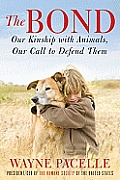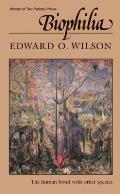
When we speak of our "humanity," it's grounded on our capacity as humans to exhibit empathy for others. It's our innate empathy that prompts us to care not only for members of our families or our friends and neighbors but also for those we've never met, especially the needy. This altruistic instinct motivates so many good works in society, and there are millions who help by sheltering the poor, feeding the hungry, or curing the ill. It's that same impulse that also prompts many of us to care for animals ? and not just those in our homes or even in our communities, but animals facing threat or crisis anywhere.
There now exists a powerful movement to defend the interests of animals and to call for an end to human-caused cruelty. Working to achieve that goal are more than ten thousand groups. And just about every kind of animal has its defenders ? from local humane societies and SPCAs and rescue groups caring mostly for dogs and cats to wildlife rehabilitation centers, to advocacy groups operating on a national or a global scale on behalf of farm animals, horses, wildlife, and every other kind of creature in need.
At the same time, there are powerful forces in society that want to keep things, for the most part, just as they are. They're prepared to defend factory farming, crude animal testing, and other uses of animals, even though they may occasionally accede to minor adjustments in their business model to make things a little less oppressive for the animals. As a general proposition, they're invested in the current approach ? either financially or intellectually ? and they just don't want to change. When you add it all up, there's more cruelty now than our world has ever known. There are ten billion animals raised for food in the United States every year, mainly on factory farms, and tens of millions of other animals used in laboratory tests and experiments, in entertainment such as animal fighting, in the fashion trade where animals are trapped or farmed for their fur, and in the pet trade.
Seen in its broadest profile, our relationship with animals is tangled and confusing. We have achieved record numbers in: pets in our households, expenditures for veterinary services, participation in wildlife-watching, and viewership of animal programming on television. It's hard to find anyone who would say he or she is not an animal lover, and every state has laws forbidding malicious cruelty and neglect. Yet, in this very same culture, we do so many harsh and awful things to animals that are perfectly legal. In some cases, the government actually protects the interests of animal abusers and not the animals by providing subsidies to agribusiness and other animal-use industries, shielding them from certain rules of public disclosure, carving out enormous classes of animals from even minimal care standards, and, in some cases, even criminalizing investigations of their operations.
The social turmoil over animal issues in our society reflects these conflicting beliefs and behaviors. As a nation, we struggle with the boundary between cruelty and economic opportunity, between caprice and necessity, and between callous disregard and careful use. Many people grapple with these moral conflicts at the personal level, especially in a society where people eat animals, wear them, and engage in other direct and indirect behaviors that cause harm to them. In short, the use of animals is intertwined in our daily lives, and there is both moral failure and moral opportunity presented to us on a constant basis.
 It's time for us to reach for a more consistent and stringent standard in our dealings with animals, stretching ourselves a bit more and using the creativity of the human mind to find better and newer ways to generate commerce and income without leaving a trail of animal victims in our wake. As a nation, we docked the whaling boats many decades ago, and we've now converted them to whale-watching vessels. Today's whale-watching industry is not just a lucrative one for coastal communities but one that fits nicely with our values about humane treatment and species protection. We must do the same for other wildlife populations now subjected to harm; we must also convert our agricultural industries to achieve humane stewardship and sustainability rather than efficiency at any cost; and we must conduct science and find cures for disease without relying on cutting up or poisoning millions of animals.
It's time for us to reach for a more consistent and stringent standard in our dealings with animals, stretching ourselves a bit more and using the creativity of the human mind to find better and newer ways to generate commerce and income without leaving a trail of animal victims in our wake. As a nation, we docked the whaling boats many decades ago, and we've now converted them to whale-watching vessels. Today's whale-watching industry is not just a lucrative one for coastal communities but one that fits nicely with our values about humane treatment and species protection. We must do the same for other wildlife populations now subjected to harm; we must also convert our agricultural industries to achieve humane stewardship and sustainability rather than efficiency at any cost; and we must conduct science and find cures for disease without relying on cutting up or poisoning millions of animals.
In The Bond, I argue that we have inborn instincts that give us a running start. We have an instinctive connection with other animals ? a social impulse that draws us toward animals and toward a benevolent way of dealing with them. The Harvard scientist E. O. Wilson calls it "biophilia," while others today even argue there's a biochemical explanation for our connection with other creatures. Whatever the source of these salutary internal impulses, there can be no doubt that we're drawn to animals, and we see it most clearly in the joyful and ecstatic eyes of our children when they see an animal.
More than ever, science now confirms what common sense has told us all along. Animals are capable of suffering. They have complex thoughts and emotions. They feel fear and joy, exhibiting a similar range of emotions to our own. And for the responsible citizen, that means not causing harm to animals at every opportunity when we can avoid it.
We're learning, more and more, that the mistreatment of animals has a corrosive effect on individuals and on society. There is a well-known link between animal cruelty and crimes against people. Factory farms don't just spawn cruelty, but also dangerous food-borne pathogens that sicken tens of millions of consumers every year. Capturing wild animals and trading them like mere commodities, for food or other purposes, also spreads diseases like SARS and avian influenza that can produce pandemics and threaten public health.
We need a new humane economy that values animals and unleashes human creativity and innovation. And consumers cannot be passive bystanders in this process. They must help the process along and encourage corporate responsibility ? for example, by adopting a pet from an animal shelter rather than buying one from a pet store, purchasing cage-free eggs instead of eggs from hens crammed together in small cages that don't allow the animals to move much at all, or by choosing a respectable cloth coat in favor of a gaudy fur.
The humane movement was born out of crisis in the 19th century, with new technologies, destructive attitudes, and the voracious demands of emerging population centers producing destruction and cruelty on previously inconceivable levels. Today, our technologies are ever more developed and sophisticated and commerce operates on a global scale, and it's more important than ever to exhibit restraint and caution given our asymmetrical power over animals.
Ultimately, a conscious concern for animals is a necessary feature of our moral progress as well as our economic success. It is good for animals, but also good for us ? and a greater quotient of decency to animals is one of the building blocks of a civil society. Animals are not a backdrop of our own story, they are at the center of the whole drama, and how we treat them is one of the great themes of the human experience.